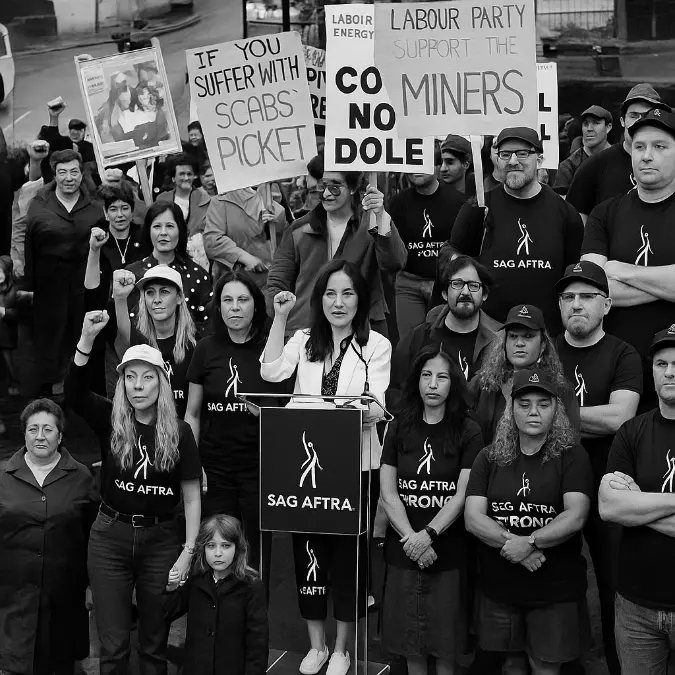
The Video Game Performers Strike: Stalling Progress
The video game industry is grinding to a halt. Since July 26, 2024, SAG-AFTRA’s video game performers, voice actors and motion capture artists, have been on strike, demanding protections against artificial intelligence (AI) from studios like Activision, Electronic Arts, and Epic Games. Over 300 days later, games like Destiny 2, Call of Duty: Black Ops 6, and Fortnite are missing voices or recycling old ones, leaving gamers with half-baked experiences. This strike echoes the 1980s coal miners’ strikes in the UK, where workers fought to preserve jobs as coal’s acid rain poisoned Europe’s forests. Like those miners, today’s performers are clinging to an outdated model, resisting AI’s inevitable rise. Just as coal’s environmental toll forced a shift to cleaner energy, AI offers a path to innovation in gaming, but the strike is dumping sour rain on players, delaying progress for the sake of tradition.
Coal Miners and Acid Rain: A Lesson in Letting Go
In the 1980s, coal miners in the UK, US, and Europe powered communities, much like performers bring life to gaming’s iconic characters. But coal was a problem. Its emissions caused acid rain, which devastated forests, killed lakes, and wiped out wildlife across Europe. The Black Forest in Germany became a grim symbol, its trees skeletal from pollution. When governments, notably in the UK during the 1984–85 miners’ strike, began closing mines to curb this damage, the National Union of Mineworkers fought back. Miners weren’t wrong to defend their livelihoods, mine closures gutted towns like Yorkshire and Wales, but coal was unsustainable. Cleaner alternatives like solar and wind were the future. Holding onto coal meant more dead forests, so society moved on, even if it hurt.
Blocking the Future
Today’s striking performers are the coal miners of the digital age, fighting to preserve a status quo that’s holding back innovation. Their core grievance? AI’s ability to replicate voices and likenesses without consent or compensation. They demand rules to protect their work, fearing studios will use AI to replace them. But this resistance mirrors the miners’ refusal to accept coal’s decline. AI isn’t perfect, it’s raised valid concerns, like Epic Games’ AI-generated Darth Vader voice in Fortnite, but it’s also a tool to streamline development, cut costs, and create new experiences. The strike has stalled major titles, leaving gamers with recycled dialogue or non-union voices, a sour rain of disrupted releases and diminished quality. Meanwhile, over 120 studios have signed interim agreements with SAG-AFTRA, proving AI and performers can coexist if the industry adapts.
The Real Victims: Gamers
Gamers are the ones suffering, caught in the crossfire of a labor dispute that feels like a relic. Like Europeans breathing coal’s toxic fallout, players are stuck with incomplete games while performers cling to old ways. The industry’s future lies in embracing AI responsibly, using it to enhance creativity, not replace it. Regulations, like those that tamed coal’s pollution, can ensure fairness without halting progress. The miners’ fight delayed the inevitable; this strike risks doing the same. Studios must innovate, and performers must adapt, or gamers will keep paying the price.
Won’t somebody please think of the Gamers.